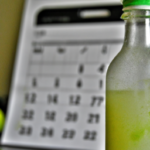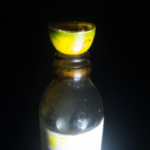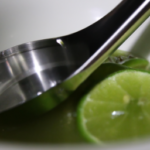Juice Tips and Tricks
How Long Does Bottled Lime Juice Last In The Fridge
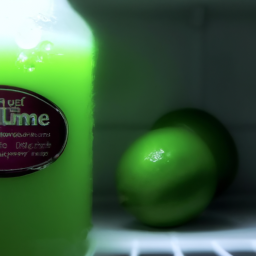
Did you know that lime juice in bottles can stay fresh for several months when kept in the refrigerator? Absolutely! By storing it properly, you can enjoy the zesty taste of lime juice long after you first open the bottle. However, it’s important to keep in mind that the freshness of bottled lime juice may vary depending on certain factors.
In this article, I’ll be exploring the shelf life of bottled lime juice, how to check if it’s gone bad, and the importance of proper storage. Additionally, I’ll provide tips on how to use up bottled lime juice and alternatives you can consider if you don’t have any on hand.
So, if you’re a fan of lime juice or curious about its shelf life, keep reading!
Key Takeaways
- Proper storage in the fridge can make bottled lime juice last for several months.
- Unopened bottled lime juice can last up to 6 months in the fridge.
- Once opened, it should be used within 2-3 weeks.
- Freezing can extend the shelf life of lime juice.
Understanding the Shelf Life of Bottled Lime Juice
So, how long does bottled lime juice last in the fridge? Well, it all depends on a few key factors. Typically, bottled lime juice can last for up to 6 months in the fridge if it’s unopened.
However, once it’s been opened, the shelf life decreases significantly. In general, you should use the juice within 2-3 weeks after opening to ensure that it’s still fresh and safe to consume.
Aside from using it as an ingredient in cooking, bottled lime juice also has benefits for the skin. It can help to brighten and even out skin tone, as well as reduce the appearance of dark spots and blemishes. To use it for this purpose, simply mix a small amount of lime juice with water and apply it to your face using a cotton ball.
However, it’s important to note that using lime juice on the skin can increase sensitivity to sunlight, so be sure to use sunscreen if you plan to go outside after applying it.
Moving on to signs that bottled lime juice has gone bad…
Signs that Bottled Lime Juice has Gone Bad
If your margarita tastes like sour milk, it’s time to say goodbye to that bottle of lime juice. Like a wilted flower, a bad batch of lime juice can ruin the whole drink. But how can you tell if your bottled lime juice has gone bad?
Here are some signs to watch out for:
-
Change in color: Lime juice should be a pale green or yellowish color. If it starts to turn brown or grey, it’s likely gone bad.
-
Off smell: Fresh lime juice should have a bright, citrusy aroma. If it smells musty or sour, it’s time to toss it.
-
Taste: As mentioned, sour milk is a good comparison for the taste of spoiled lime juice. It may also taste bitter or metallic.
-
Mold: Visible mold or other growths are a clear sign that the juice has gone bad.
Using spoiled lime juice in a drink can not only ruin the taste but also be harmful to your health. Instead of throwing it out, consider using it for cleaning or cooking purposes.
In the next section, we’ll discuss why it’s important to check for spoilage before using bottled lime juice in any recipe.
Importance of Checking for Spoilage
Make sure you check for spoilage before using it, as drinking or cooking with bad lime juice can lead to health problems. It’s important to check the expiration date on the bottle of lime juice before using it.
Expired lime juice can cause gastrointestinal upset, including stomach pain, nausea, and vomiting. In addition to checking the expiration date, it’s also important to look for signs of spoilage. Bad lime juice may have a sour or strange odor and taste, and it may appear cloudy or discolored.
If you notice any of these signs, it’s best to discard the lime juice and not use it in any recipes or drinks. Now that you know the importance of checking for spoilage, let’s move on to some tips for storing bottled lime juice.
Tips for Storing Bottled Lime Juice
When it comes to storing bottled lime juice, there are a few key things to keep in mind to ensure freshness and safety.
First of all, it’s important to properly seal and label the bottle, to prevent air and bacteria from getting in.
Additionally, it’s crucial to avoid cross-contamination by using clean utensils and surfaces when handling the juice.
Finally, freezing lime juice can be a great way to extend its shelf life, but it’s important to do so in a safe and effective manner.
Proper Sealing and Labeling
Properly sealed and labeled, your lime juice can last for weeks in the fridge, giving you plenty of time to whip up your favorite margaritas and guacamole recipes. Proper labeling is important for keeping track of when you opened the bottle and when it should be used by. Additionally, storing your bottled lime juice in the fridge at a consistent temperature of 40°F or below will help maintain its quality. Here are some tips for properly sealing and labeling your bottled lime juice:
| Seal Type | Effectiveness | Notes |
|---|---|---|
| Screw Cap | Good | Easy to open and close, but may not provide an airtight seal |
| Cork | Fair | May allow air in over time, but can be resealed with a stopper |
| Rubber Stopper | Good | Provides an airtight seal, but may be difficult to remove |
Ensuring that your lime juice is properly labeled with the date it was opened and the expiration date will help you keep track of its freshness. Use a permanent marker or label maker to clearly mark the bottle with this information.
To avoid cross-contamination, it’s important to properly clean any utensils or surfaces that come into contact with the lime juice before and after use.
Avoiding Cross-Contamination
To keep your lime juice fresh and safe for consumption, it’s important to prevent cross-contamination. This means ensuring that any utensils or surfaces that come into contact with the lime juice are thoroughly cleaned before use.
One effective method is to use hot, soapy water to clean utensils and a disinfectant spray or wipe to clean surfaces. It’s also important to keep the lime juice container tightly sealed and stored in a separate area of the fridge to prevent any accidental contact with other foods.
Another way to prevent cross-contamination is to use separate utensils for handling the lime juice and other foods. This can be especially important when preparing meals or drinks that require both lime juice and other ingredients.
By being mindful of these cleaning methods and taking precautions, you can ensure that your bottled lime juice stays fresh and free from harmful bacteria. And if you have excess lime juice that won’t be used right away, freezing it can be a great option.
Freezing Lime Juice
To further extend the shelf life of bottled lime juice, one option is to freeze it. Freezing lime juice is a great way to make it last longer and ensure that you always have some on hand for recipes. However, there are certain steps you need to take to properly freeze lime juice.
Firstly, make sure to transfer the lime juice into a freezer-safe container, leaving some extra space at the top for the liquid to expand as it freezes. Secondly, label the container with the date it was frozen to keep track of its freshness. Thirdly, place the container in the freezer and allow it to freeze completely. Lastly, when you’re ready to use it, thaw the lime juice in the refrigerator overnight. Don’t thaw it at room temperature as this can lead to the growth of harmful bacteria.
Here are some uses for frozen lime juice:
- Add it to smoothies for a zesty kick
- Use it to make limeade or margaritas
- Add it to marinades for meats and vegetables
- Use it in salad dressings for a citrus flavor
With the knowledge of how to properly freeze lime juice and the versatility in its uses, you can maximize the shelf life of your bottled lime juice and always have some on hand. So, let’s explore some ways to use up bottled lime juice.
Ways to Use Up Bottled Lime Juice
I’ve found myself with a surplus of bottled lime juice in the fridge, and I’m looking for creative ways to use it up.
One option is to incorporate it into cooking and baking, such as using it in a marinade for grilled chicken or adding it to a key lime pie filling.
Another idea is to mix it into cocktails and drinks, like a refreshing mojito or margarita.
Lastly, bottled lime juice can be a versatile ingredient in marinades and dressings for salads or grilled vegetables.
Cooking and Baking
You can add a hint of lime juice to your cooking and baking for a unique and refreshing flavor. Lime juice is a versatile ingredient that can be used in many recipes as a substitute for other ingredients or as an addition to enhance the flavor. Here are three ways to use bottled lime juice in your cooking and baking:
- Add a splash of lime juice to your marinades for a tangy and zesty flavor.
- Use lime juice in place of vinegar in salad dressings for a fresh and citrusy taste.
- Incorporate lime juice into your baking recipes, such as in a key lime pie or lime flavored cookies.
By using bottled lime juice in your cooking and baking, you can easily add a burst of flavor to your dishes without having to worry about squeezing fresh limes. Plus, it’s a great ingredient to have on hand for cooking substitutions and lime juice recipes.
Moving on to cocktails and drinks, there are many ways to incorporate bottled lime juice for a refreshing and tropical twist to your beverages.
Cocktails and Drinks
If you want to transport yourself to a tropical island, all you need is a cocktail with a splash of lime juice, like a Margarita that’s like a mini-vacation in a glass. But if you don’t have fresh limes on hand, bottled lime juice can be a convenient substitute. The good news is that bottled lime juice can last for a long time in the fridge, making it a reliable ingredient for your cocktail recipes.
To help you better understand how long bottled lime juice can last, here’s a handy table to guide you:
| Type of Lime Juice | Opened Bottle Shelf Life | Unopened Bottle Shelf Life |
|---|---|---|
| Fresh Lime Juice | 2-3 days | 2-3 months |
| Bottled Lime Juice | 6 months | 1 year |
As you can see, bottled lime juice has a longer shelf life than fresh lime juice. However, it’s important to note that the shelf life can vary depending on the brand and preservatives used. Always check the label for any expiration dates or storage instructions to ensure that your bottled lime juice stays fresh for as long as possible.
If you’re in a pinch and don’t have any lime juice on hand, there are also lime juice substitutes that you can use in your cocktails. Lemon juice, orange juice, and grapefruit juice can all be used as substitutes for lime juice, but keep in mind that the flavor profile will be slightly different. Experiment with different substitutes to find the perfect flavor for your cocktail.
Moving on to the next topic, let’s talk about marinades and dressings.
Marinades and Dressings
Nothing beats a delicious marinade or dressing to take your meals to the next level, adding flavor and depth to your favorite dishes. With the use of fresh herbs, spices, oils, and acid, you can whip up your own marinade recipes and salad dressings in no time. The best part? You can customize them to your liking, making them as tangy, spicy, or sweet as you want.
Marinades are perfect for infusing meats, poultry, and fish with flavor before cooking them. A simple marinade can be made with olive oil, garlic, lemon juice, and herbs like rosemary and thyme.
Salad dressings can be made with a variety of ingredients like balsamic vinegar, honey, mustard, and olive oil. Combine them with fresh greens and veggies for a healthy and tasty meal.
Looking for alternatives to bottled lime juice? There are plenty of options available, such as using fresh lime juice, lemons, or other citrus fruits. You can also try using vinegar or different types of fruit juices to add acidity to your dishes.
With a little creativity, you can elevate your meals with fresh and flavorful ingredients.
Alternatives to Bottled Lime Juice
There’s always fresh lime juice as an alternative to bottled lime juice. Making homemade lime juice is quite easy and requires nothing more than fresh limes, a juicer, and a little bit of elbow grease. Simply cut the limes in half and juice them using the juicer.
You can also use a handheld reamer or even squeeze the juice out by hand. If you don’t have fresh limes, there are other fresh lime options available. You can purchase pre-squeezed lime juice from the grocery store, or you can buy frozen lime concentrate and thaw it out in the fridge.
Other types of citrus juices, such as lemon or grapefruit juice, can also be used as a substitute for lime juice in most recipes. So, if you’re in a pinch and don’t have any bottled lime juice on hand, don’t worry – there are plenty of fresh alternatives available.
Other Types of Citrus Juices
Adding variety to your recipes is simple, as other citrus juices like lemon or grapefruit can be used as substitutes for lime juice. Citrus juice substitutions can be made in a variety of recipes, including marinades, dressings, cocktails, and desserts.
Here are some recipe ideas that use other citrus juices:
- Lemon Chicken: Instead of using lime juice in your marinade, try using lemon juice for a tangy and refreshing flavor.
- Grapefruit Margarita: Swap out the lime juice in your margarita recipe for grapefruit juice to add a unique twist to a classic cocktail.
- Orange Cake: Use orange juice instead of lime juice in your cake batter for a citrusy and sweet dessert that will please any crowd.
While lime juice is a popular ingredient in many recipes, don’t be afraid to experiment with other citrus juices. There are plenty of tasty recipes using other citrus juices that can add a new dimension of flavor to your dishes.
Now, let’s explore the benefits of lime juice.
Benefits of Lime Juice
I love using lime juice in my cooking and drinks, not just for its refreshing taste, but also for its numerous health benefits.
Lime juice is a great source of vitamin C, antioxidants, and other nutrients that are essential for maintaining a healthy body.
In addition, lime juice is known to boost immunity, aid digestion, and even improve skin health.
Nutritional Value
Just like a superhero’s secret weapon, bottled lime juice may not have much nutritional value, but it can add a powerful punch of flavor to any dish. It’s a versatile ingredient that can be used in a variety of lime juice recipes, such as marinades, dressings, and cocktails. If you don’t have fresh lime on hand, bottled lime juice is a convenient substitute that can save you time and effort in the kitchen.
While bottled lime juice doesn’t offer the same nutritional benefits as fresh lime juice, it still contains some important vitamins and minerals. It’s a good source of vitamin C, which is essential for a healthy immune system and skin. It also contains small amounts of potassium, magnesium, and calcium.
So, even though bottled lime juice is primarily used for its flavor, it still has some nutritional value that can contribute to your overall health.
Moving on to the next section, let’s explore the health benefits of lime juice in more detail.
Health Benefits
Get ready to reap the health benefits of lime juice as it can help boost your immune system, aid in digestion, and even promote weight loss. Lime juice is packed with Vitamin C, which is essential for a healthy immune system. Drinking lime juice regularly can also help with digestion as it contains citric acid which aids in breaking down food.
Moreover, lime juice has been found to aid in weight loss by reducing appetite and promoting metabolism. When it comes to juicing techniques, lime juice is a great addition to any homemade juice recipe. Adding lime juice to your morning green juice can help balance out the bitterness of leafy greens and add a refreshing flavor.
Lime juice also makes a great addition to any fruit juice recipe, as it enhances the sweetness of fruits like strawberries, watermelon, and pineapple. However, it’s important to note that consuming too much lime juice can lead to tooth enamel erosion. Therefore, it’s important to drink lime juice in moderation and practice good dental hygiene.
Precautions to Consider
Proper precautions prevent prolonged preservation of bottled lime juice in the fridge. While bottled lime juice can be a great ingredient for various recipes, it’s important to keep in mind that it has a limited lifespan in the fridge.
Once opened, bottled lime juice can last up to 2-3 months when stored properly in the refrigerator. However, this doesn’t mean that it’ll retain its full flavor or potency for this entire duration. If you’re planning to use bottled lime juice for your recipes, it’s important to check the expiration date on the bottle and use it within a reasonable time frame. Keep in mind that the quality of the juice may start to deteriorate even before the expiration date, affecting both the taste and the nutritional value. Similarly, if you’re wondering how long bottled lemon juice lasts, it typically has a shelf life of about 6-12 months when unopened, but once opened, it should also be refrigerated and used within a few months for best results. Always trust your senses—if the juice smells off or has changed in color, it’s safer to discard it.
Additionally, make sure to store it in a cool and dry place, away from direct sunlight or heat sources. If you notice any signs of spoilage, such as a sour smell or mold growth, discard the bottle immediately. By taking these simple precautions, you can ensure that your bottled lime juice stays fresh and safe to use for as long as possible.
Frequently Asked Questions
Can bottled lime juice be frozen for long-term storage?
Yes, bottled lime juice can be frozen for long-term storage using proper freezing methods. To thaw, place in the refrigerator or run under cold water. Avoid leaving at room temperature for too long to prevent spoilage.
Can bottled lime juice be used in place of fresh lime juice in cocktails?
I prefer fresh lime juice in cocktails for its punchy, bright flavor. Bottled lime juice can be used in a pinch, but it lacks the complexities of fresh. Comparing flavor profiles, fresh always wins.
Is there a difference in shelf life between plastic and glass bottled lime juice?
I’ve found that the shelf life of plastic and glass bottled lime juice is generally the same. When considering recycling options and environmental impact, glass is the more sustainable choice. However, cost comparison and availability in stores may vary.
Can bottled lime juice be used for cooking and marinades?
Hey there! I love using bottled lime juice in my recipes. It’s perfect for cooking and marinades, and adds a tangy flavor to any dish. Some recipe ideas include grilled chicken with lime marinade or a refreshing lime vinaigrette for salads.
Are there any health concerns associated with consuming expired bottled lime juice?
Consuming expired bottled lime juice can pose health risks, as bacteria can grow and cause foodborne illness. Always check the expiration date before using and discard if expired.
Conclusion
Well, my friends, I’ve delved deep into the world of bottled lime juice and I can confidently say that this tangy liquid is a true hero in any kitchen.
Not only does it add a burst of flavor to any dish, but it also has numerous health benefits that we can’t ignore. However, we must be vigilant in checking for spoilage and storing it properly to fully enjoy its benefits.
Let’s be real, the thought of wasting precious bottled lime juice is enough to make any foodie cringe. So, take my advice and make sure you keep an eye out for any signs of spoilage. Trust me, you don’t want to be stuck with a funky smelling and tasting bottle of juice that’s well past its prime.
Remember to store it in the fridge and use it up within a reasonable amount of time.
Overall, bottled lime juice is a staple ingredient that no kitchen should be without. So, if you haven’t already stocked up, what’re you waiting for? Grab a bottle and let the tangy goodness add some zest to your life!
Susannah expertise lies in researching and compiling evidence-based content on juicing, nutrition, and overall health. She is committed to ensuring that The Juicery World offers accurate, up-to-date, and trustworthy information to empower readers to take control of their health. Susannah’s goal is to inspire individuals to embrace juicing as a way to nourish their bodies and live their best lives.
Juice Tips and Tricks
How to Make Aloe Vera Juice Taste Better

Tired of the strong flavor of aloe vera juice? No problem, we’ve got the answer for you.
In this article, we’ll share some tips and tricks to make your aloe vera juice taste better. We have tried and tested various methods to enhance the flavor without compromising the health benefits.
From choosing the right juice to adding natural sweeteners and infusing with fruits and herbs, we’ve got all the information you need to transform your aloe vera juice into a delightful and refreshing beverage.
Let’s dive in!
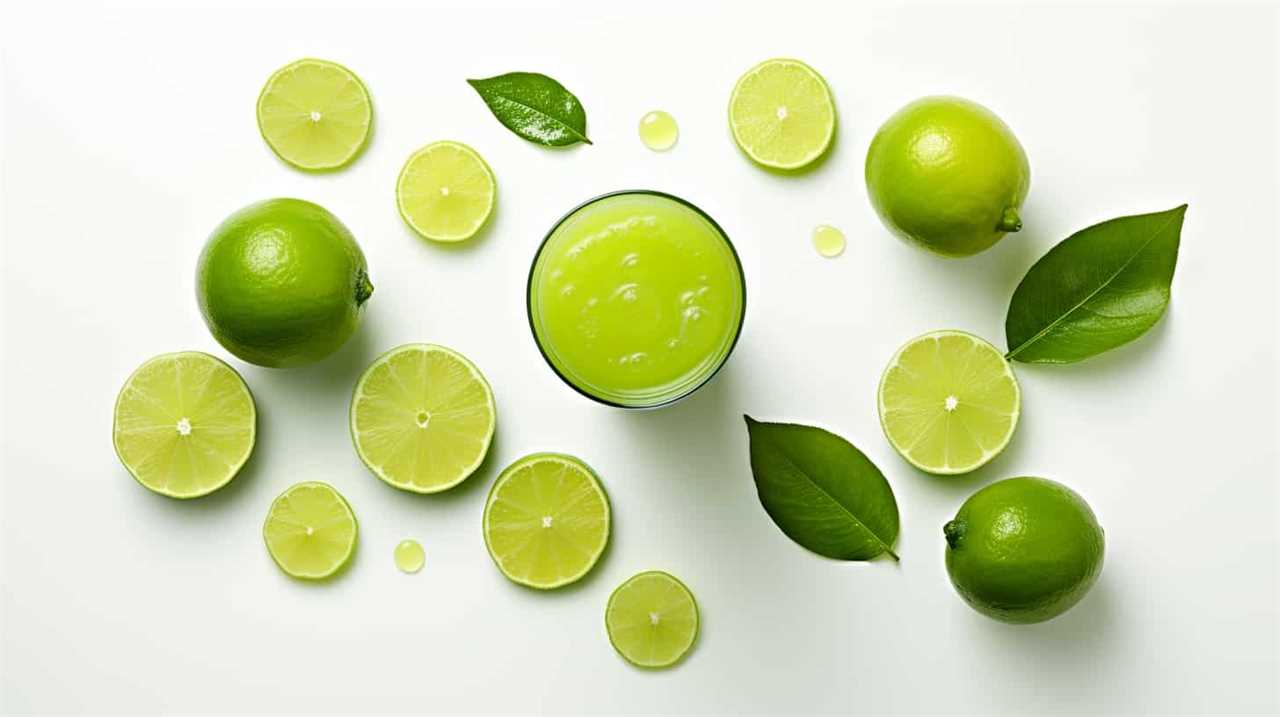
Key Takeaways
- Choose a reputable brand of aloe vera juice that prioritizes quality and uses organic, pure aloe vera.
- Avoid brands that contain added sugars or artificial ingredients.
- Use natural sweeteners like honey, agave syrup, or stevia to enhance the taste of aloe vera juice.
- Experiment with adding fruits, herbs, and other juices to create unique flavor combinations and enhance the health benefits of aloe vera juice.
Choosing the Right Aloe Vera Juice
We can enhance our experience with aloe vera juice by selecting the right brand and type for our preferences. When it comes to finding a reputable brand, it’s important to do some research and read reviews from other consumers. Look for brands that prioritize quality and use organic, pure aloe vera without any added sugars or artificial ingredients. Understanding the health benefits of aloe vera juice is also crucial in making the right choice. Aloe vera is known for its soothing properties, aiding digestion, promoting skin health, and boosting the immune system. By choosing a high-quality brand, we can ensure that we’re getting the maximum benefits from our aloe vera juice.
Now that we know how to choose the right brand, let’s move on to the next step of adding natural sweeteners.
Adding Natural Sweeteners
To enhance the flavor of our aloe vera juice, we can add natural sweeteners such as honey or agave syrup. Using alternative sweeteners not only adds sweetness but also brings unique flavors to the juice. Here are some options to consider:
- Stevia: A natural sweetener derived from the Stevia plant, it’s a zero-calorie alternative to sugar.
- Maple Syrup: This natural sweetener adds a rich and earthy flavor to the aloe vera juice.
- Dates: Pureed dates can be used to sweeten the juice while also providing essential nutrients like fiber.
In addition to using alternative sweeteners, we can enhance the flavor of aloe vera juice by adding spices and extracts. Cinnamon, ginger, or vanilla extract can add warmth and depth to the taste. By experimenting with different combinations of these natural sweeteners, spices, and extracts, we can create a flavor profile that suits our preferences.
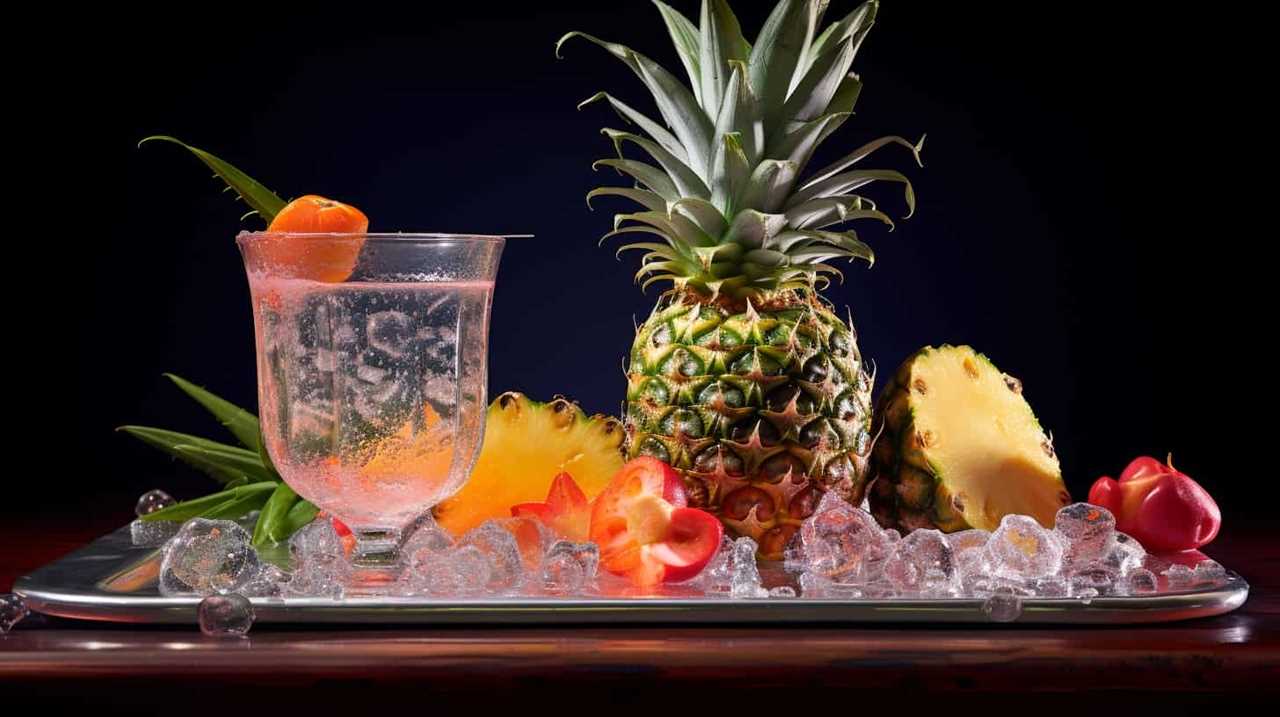
Now, let’s move on to the next section and learn how to infuse aloe vera juice with fruits and herbs to further enhance its taste.
Infusing With Fruits and Herbs
As we explore ways to make our aloe vera juice taste better, one option to consider is infusing it with fruits and herbs. Creating unique aloe vera blends by adding fruits and herbs not only enhances the flavor but also adds a touch of freshness and complexity to the juice. For example, combining aloe vera juice with lemon, mint, or berries can create a refreshing drink that’s both delicious and packed with additional nutrients. It’s similar to the ease of making lemonade with bottled juice—quick, convenient, and customizable to suit your preferences. By experimenting with different fruit and herb combinations, you can elevate your aloe vera juice experience while still reaping its health benefits.
Fruits like strawberries, pineapple, or citrus can add a burst of sweetness, while herbs like mint, basil, or ginger can provide a subtle yet refreshing twist. Exploring the benefits of herbal infusions can also be beneficial for our health. For example, adding a few sprigs of lavender can promote relaxation and reduce stress. Additionally, infusing aloe vera juice with rosemary can aid digestion and boost the immune system.
Blending With Other Juices
Let’s try mixing aloe vera juice with different fruit juices to create delicious and refreshing blends. Blending aloe vera juice with other fruits not only enhances its taste but also adds nutritional benefits to your drink. Here are three fruit juices that you can mix with aloe vera juice:

- Orange juice: Combining aloe vera juice with orange juice not only adds a tangy flavor but also boosts your intake of vitamin C, which is essential for a strong immune system.
- Pineapple juice: Mixing aloe vera juice with pineapple juice creates a tropical blend that isn’t only refreshing but also helps in digestion. Pineapple contains bromelain, an enzyme that aids in breaking down proteins and promoting better digestion.
- Watermelon juice: Blending aloe vera juice with watermelon juice creates a hydrating and refreshing combination. Watermelon is rich in water content and contains electrolytes that can help replenish your body’s fluids.
Experimenting With Flavor Combinations
While we can try various flavor combinations with aloe vera juice, it’s important to find the right balance to enhance its taste. Experimenting with different flavors can’t only make the juice more enjoyable but also enhance its health benefits.
Aloe vera juice is known for its numerous health benefits, such as boosting digestion, promoting hydration, and supporting the immune system. By adding complementary flavors, we can create a refreshing summer drink that not only tastes great but also provides a nutritional boost.
Some popular flavor combinations include mixing aloe vera juice with citrus fruits like lemon or orange, adding a splash of coconut water for a tropical twist, or combining it with cucumber and mint for a refreshing and cooling effect.
Don’t be afraid to get creative and find the flavor combination that suits your taste buds best!
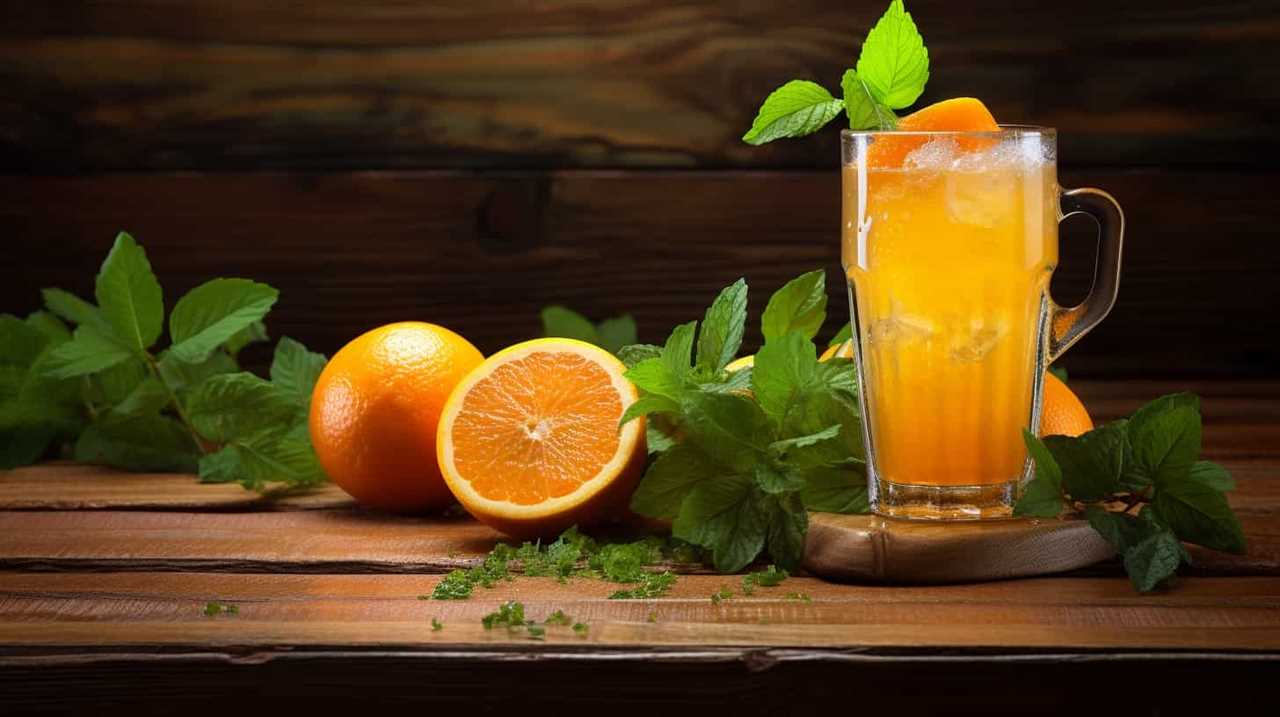
Frequently Asked Questions
Can I Use Store-Bought Aloe Vera Gel Instead of Fresh Aloe Vera for Making Juice?
Yes, you can use store-bought aloe vera gel instead of fresh aloe vera for making juice. However, it’s important to note that fresh aloe vera juice may have more health benefits due to its higher nutrient content.
How Long Can I Store Aloe Vera Juice in the Refrigerator?
Aloe vera juice can be stored in the refrigerator for up to a week. Refrigeration helps maintain the longevity and freshness of the juice, preserving its beneficial properties. It’s important to store the juice in an airtight container to prevent contamination and maintain its quality. Similarly, you might wonder *how long ginger juice lasts*; typically, fresh ginger juice can be refrigerated for about 1–2 weeks as well. Both aloe vera and ginger juices are best consumed within their shelf life to ensure maximum potency and health benefits. Additionally, freezing either juice can extend their shelf life, though some loss of nutrients and potency may occur during the process. When thinking about *how long fresh juice lasts*, it’s crucial to check for signs of spoilage, such as changes in smell, taste, or color, before consuming. To enjoy the best results, it’s always recommended to use fresh ingredients and properly store the juice to ensure you’re getting the most out of its health benefits.
Can Aloe Vera Juice Help With Digestive Issues?
Aloe vera juice can potentially help with digestive issues when taken in appropriate dosages. However, it is important to note that there may be potential side effects. It is always best to consult with a healthcare professional before starting any new supplement regimen.
Can I Use Artificial Sweeteners Instead of Natural Sweeteners in My Aloe Vera Juice?
Using artificial sweeteners in aloe vera juice may affect its taste and potential health benefits. However, natural sweeteners like honey or stevia can enhance the flavor without compromising its nutritional value.

Is It Safe to Drink Aloe Vera Juice Every Day?
Drinking aloe vera juice daily can have numerous benefits, such as improving digestion and boosting the immune system. However, consuming it regularly may also lead to potential side effects like diarrhea or stomach cramps.
Conclusion
In conclusion, making aloe vera juice taste better is easy and enjoyable.
By choosing the right aloe vera juice and adding natural sweeteners, infusing with fruits and herbs, blending with other juices, and experimenting with flavor combinations, you can create a delightful and refreshing drink.
So go ahead and unleash your creativity in the kitchen, and transform your aloe vera juice into a sensational elixir that will transport your taste buds to paradise.
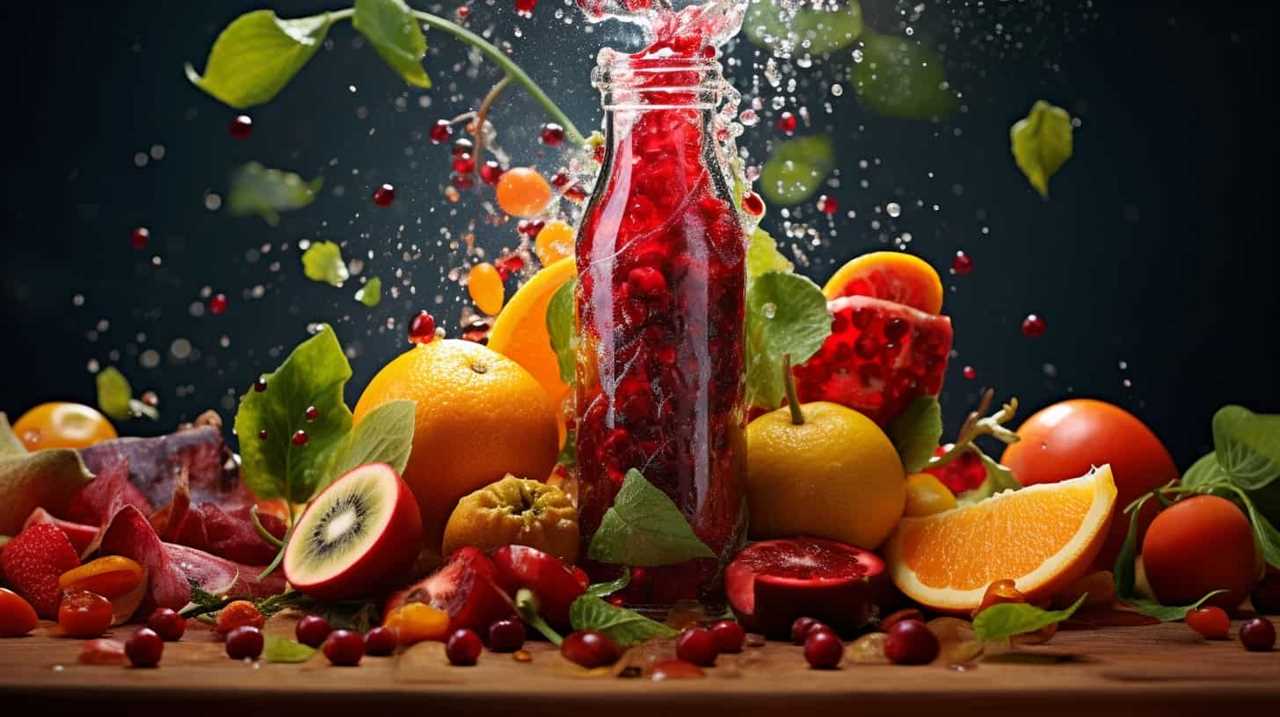
Susannah expertise lies in researching and compiling evidence-based content on juicing, nutrition, and overall health. She is committed to ensuring that The Juicery World offers accurate, up-to-date, and trustworthy information to empower readers to take control of their health. Susannah’s goal is to inspire individuals to embrace juicing as a way to nourish their bodies and live their best lives.
Juice Tips and Tricks
How to Make a Glass of Lemonade With Bottled Lemon Juice

Are you craving a cool glass of lemonade to quench your thirst? Look no further! Try out our perfect recipe using bottled lemon juice that will surely please your taste buds.
In this article, we’ll guide you through the process of creating a tangy and sweet concoction that will leave you feeling refreshed and satisfied.
So grab your ingredients and let’s get started on this delightful journey of serving ourselves and others a glass of pure lemony goodness.
Key Takeaways
- Consider the storage of the bottled lemon juice (dark glass or plastic bottles, protect from light exposure, check expiration date)
- Choose a suitable pitcher and fresh lemons for enhanced flavor
- Store the lemonade concentrate in the refrigerator to maintain freshness
- Adjust the sweetness and tartness to taste with sugar or more lemon juice, and experiment with different sweeteners or additional flavors.
Choosing the Right Bottled Lemon Juice
What are the key factors we should consider when selecting the right bottled lemon juice for our lemonade?

One important factor is how the lemon juice is stored. Look for bottles that are made of dark glass or plastic, as they help protect the juice from light exposure, which can degrade its quality. It’s also important to check the expiration date to ensure freshness.
Another benefit of using bottled lemon juice is convenience. It saves time and effort compared to squeezing fresh lemons. Additionally, bottled lemon juice provides consistent flavor, as the acidity levels are standardized.
When selecting a brand, consider reading reviews and checking for certifications, such as organic or non-GMO.
Gathering the Necessary Ingredients and Tools
How can we gather all the necessary ingredients and tools to make a glass of lemonade with bottled lemon juice? First, we’ll need to collect bottled lemon juice, sugar, and cold water, as well as a pitcher and a spoon for mixing. If you prefer extra flavor, you can also gather ice and optional add-ins like mint or soda water. While preparing the lemonade, it’s easy to understand why some people wonder about other citrus drinks and may ask, “how many oranges per gallon” are needed when making orange juice instead. Once everything is assembled, combine the lemon juice, sugar, and water in the pitcher, stirring until the sugar dissolves. Feel free to adjust the sweetness or tartness to your liking, and don’t forget to add ice or any optional add-ins for an extra refreshing touch. This process might even make you curious about how much juice from oranges is needed when making fresh orange juice compared to using bottled citrus products. Once your lemonade is ready, pour it into a glass and enjoy the refreshing taste. This simple recipe can inspire you to try other homemade juices, such as learning **how to make pear juice** or experimenting with other fruit combinations. Whether you’re using fresh fruits or bottled options, creating your own beverages is a fun and rewarding way to personalize your drinks.
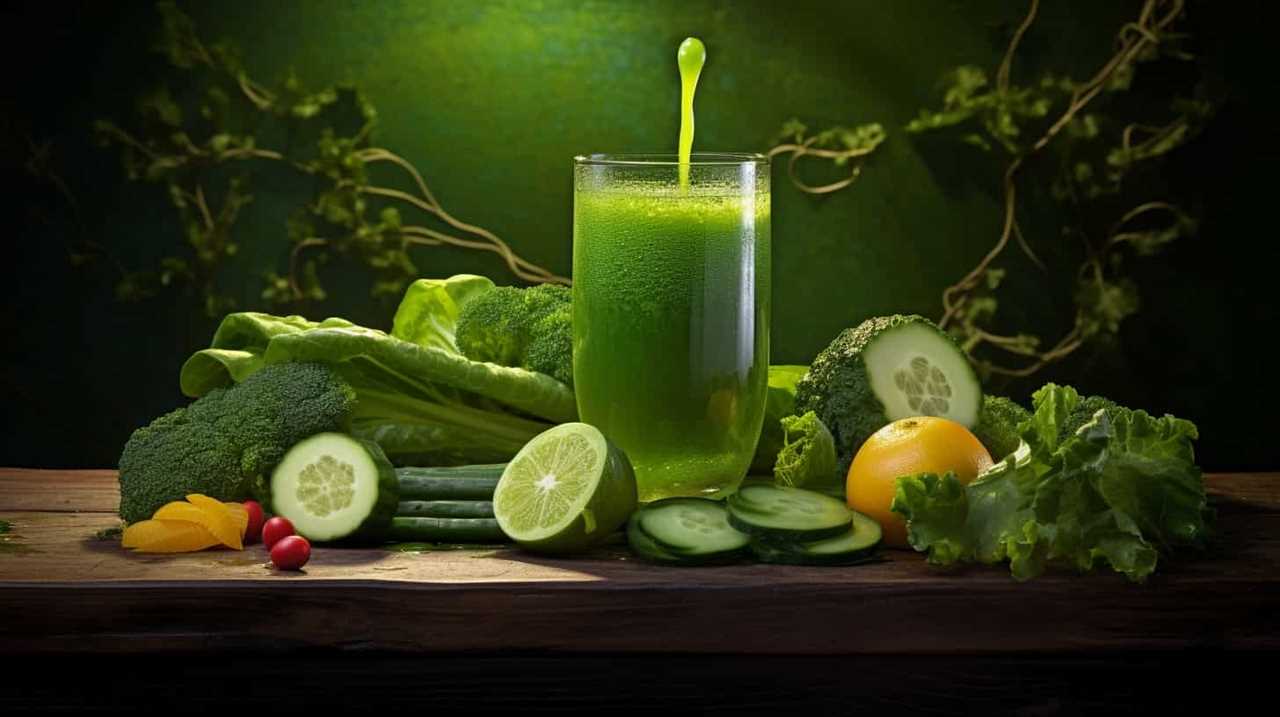
It’s important to start with the right pitcher. Look for a pitcher that’s made of glass or BPA-free plastic, as these materials won’t affect the taste of the lemonade. The pitcher should also have a lid or cover to keep the lemonade fresh and prevent spills.
Now, let’s talk about the lemons. While bottled lemon juice is convenient, using fresh lemons instead can elevate the flavor of your lemonade. Choose lemons that are firm and have a bright yellow color. Give them a gentle squeeze to ensure they’re juicy. To extract the juice, you’ll need a citrus juicer or a reamer. These tools make it easy to get every last drop of juice from the lemons.
Mixing the Lemonade Concentrate
To start mixing the lemonade concentrate, we’ll slowly pour the bottled lemon juice into the pitcher. It’s important to choose the right container for the lemonade concentrate. A pitcher with a lid or a tightly sealed container will help maintain the freshness and prevent any spills or leaks. Once the lemon juice is in the pitcher, we can move on to the next step of adding water and sweetener.
To ensure the lemonade concentrate stays fresh, it’s essential to store it properly. Keep the pitcher in the refrigerator to maintain its cool temperature and prevent any bacteria growth. If you have any leftover concentrate, transfer it to a smaller container with an airtight lid before refrigerating. This will help retain its flavor and prevent any contamination.

Now that we’ve mixed the lemonade concentrate, it’s time to adjust the sweetness and tartness to taste.
Adjusting the Sweetness and Tartness to Taste
We can adjust the sweetness and tartness of the lemonade to taste by adding more sugar or lemon juice, respectively. If you prefer a sweeter lemonade, simply add more sugar and stir until it dissolves completely. You can experiment with different sweeteners such as honey or agave syrup to find the perfect balance of sweetness.
On the other hand, if you want a tangier lemonade, add more lemon juice gradually, tasting as you go until it reaches your desired level of tartness.
Additionally, you can get creative with your lemonade by adding flavors like fresh mint leaves or a hint of lavender. These additions can elevate the flavor profile and create a more refreshing and unique experience.
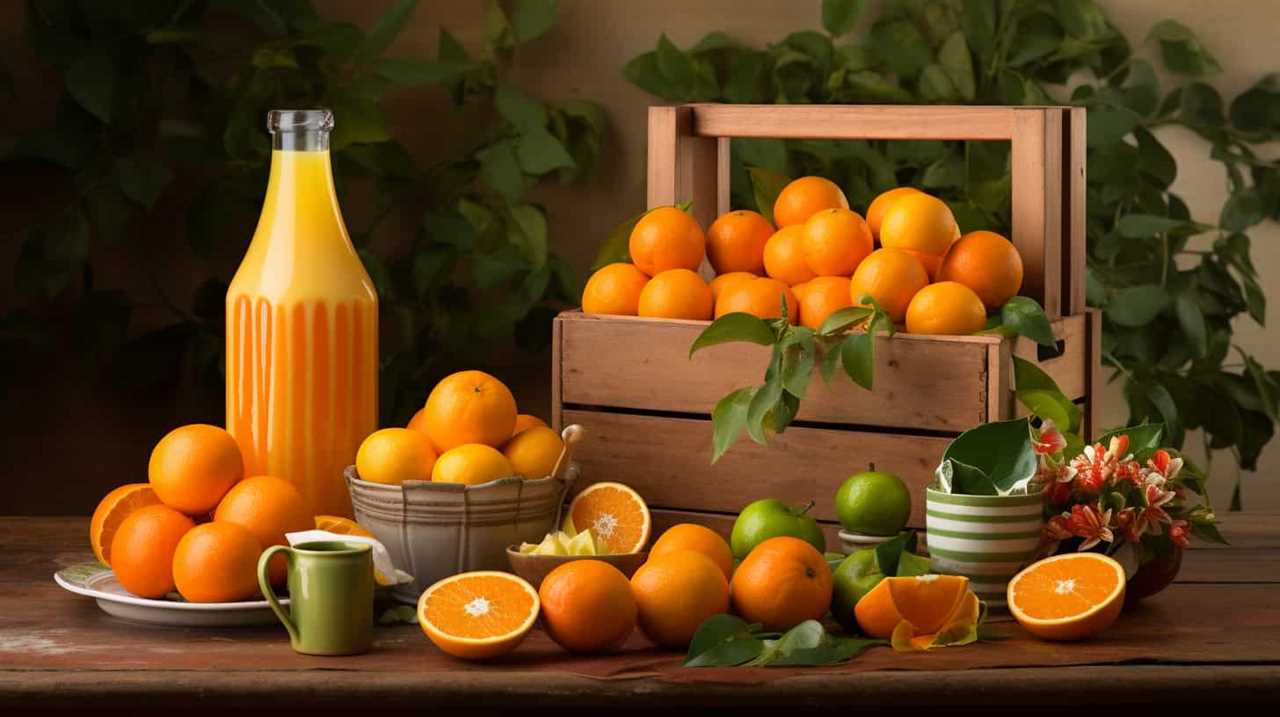
Now that we’ve adjusted the sweetness and tartness of our lemonade, let’s move on to serving and enjoying your refreshing glass of lemonade.
Serving and Enjoying Your Refreshing Glass of Lemonade
Now let’s sit back, relax, and savor our refreshing glass of lemonade.
When it comes to serving and enjoying this delightful drink, there are a few techniques and garnishing options to consider.
Firstly, serving your lemonade chilled is essential for maximum enjoyment. Ensure that you have chilled glasses or add ice cubes to the glasses before pouring the lemonade.

To add a touch of elegance, you can garnish your lemonade with a slice of lemon on the rim of the glass. For an extra burst of flavor, you could also add a sprig of fresh mint or a few berries.
Remember to gently stir the lemonade before serving to evenly distribute the flavors.
Now, take a sip, feel the refreshing tang of lemon, and let the sweet and tart flavors dance on your taste buds.
Cheers!
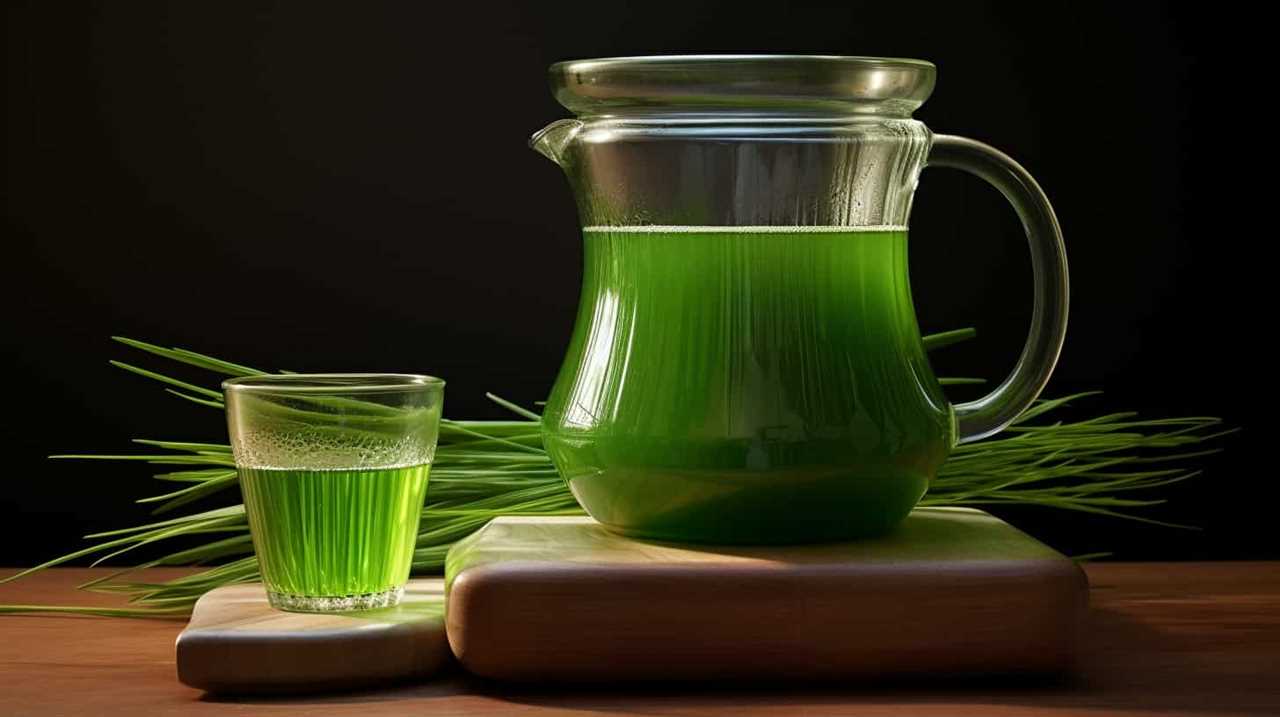
Frequently Asked Questions
Can I Use Fresh Lemons Instead of Bottled Lemon Juice?
Fresh lemons offer numerous benefits over bottled lemon juice. The taste of fresh lemons is unparalleled, providing a vibrant and tangy flavor. Incorporating fresh lemons into your lemonade will elevate its taste and give it a refreshing and authentic twist.
Can I Substitute Sugar With a Different Sweetener?
Substituting sweeteners in lemonade can enhance the flavor and offer health benefits. We’re knowledgeable about alternative sweeteners and can provide precise, detailed instructions on using them in place of sugar.
How Long Does the Lemonade Concentrate Need to Chill in the Refrigerator?
The chilling time for the lemonade concentrate in the refrigerator is typically around 1-2 hours. Using bottled lemon juice offers the benefit of convenience and consistent flavor for a refreshing glass of lemonade.
Can I Add Other Fruits or Flavors to the Lemonade?
Sure, we can definitely add different fruits or flavors to our lemonade. It’s a great way to experiment with unique flavors and create refreshing, personalized drinks. The possibilities are endless!

How Long Does the Lemonade Stay Fresh in the Refrigerator?
Lemonade made with bottled lemon juice can stay fresh in the refrigerator for about 5-7 days. To maximize shelf life, store it in an airtight container and keep it chilled.
Conclusion
And so, with a few simple steps and the right ingredients, a glass of refreshing lemonade is born.
Like a symphony of flavors dancing on your taste buds, this tangy elixir quenches thirst and brings joy on a hot summer day.
Just a sip transports you to a world of citrusy delight, where the sweetness and tartness blend harmoniously.

So go ahead, indulge in the art of lemonade-making and savor every drop of this sun-kissed nectar.
Cheers to the perfect glass of lemonade!
Susannah expertise lies in researching and compiling evidence-based content on juicing, nutrition, and overall health. She is committed to ensuring that The Juicery World offers accurate, up-to-date, and trustworthy information to empower readers to take control of their health. Susannah’s goal is to inspire individuals to embrace juicing as a way to nourish their bodies and live their best lives.
Juice Tips and Tricks
How to Know if Orange Juice Is Bad

We’ve all been in that situation before – reaching for a glass of orange juice and hesitating, unsure if it’s still okay to drink. Fear not! This article will give you the knowledge you need to determine for sure if your orange juice is still fresh or if it’s gone bad.
With a blend of scientific precision and practical tips, we’ll explore color changes, strange smells, off taste, texture changes, and mold or growth that may indicate spoilage.
Let’s dive in and serve ourselves a refreshing glass of certainty!
Key Takeaways
- Color changes in orange juice can indicate a loss of freshness and shelf life extension, but it doesn’t necessarily mean the juice is bad.
- Unusual or off-putting odors in orange juice, such as sour or fermented scents, can be a sign of poor quality.
- An off taste in orange juice, such as sour, bitter, or fermented flavors, suggests that the juice is spoiled.
- Texture changes in orange juice, such as pulp separation or a thicker consistency, can occur as the juice ages, so it’s important to consume it before the expiration date.
Color Changes in Orange Juice
We should be aware that color changes can indicate whether orange juice is bad.

When it comes to orange juice, color is a crucial factor to consider. As oranges are exposed to air, an oxidation process occurs, which leads to changes in color. Fresh orange juice has a vibrant orange hue, indicating its freshness and high nutritional value.
However, as time passes, the juice may undergo a color change, turning dull or brownish. This change in color is a result of the oxidation process, which affects the flavor and quality of the juice. It’s important to note that while a change in color doesn’t necessarily mean the juice is bad, it does indicate that the juice is losing its freshness and shelf life extension.
Therefore, it’s advisable to consume orange juice when it’s at its freshest, as indicated by its vibrant orange color.
Strange Smells in Orange Juice
When it comes to evaluating orange juice, we should be cautious of any strange smells or odors. A fresh, pleasant smell is indicative of good quality orange juice. However, if you notice any unusual or off-putting odors, it may be a sign that the juice has gone bad. These smells can range from a sour or fermented scent to a rancid or moldy aroma.

It’s important to note that while some natural variations in scent can occur due to the specific variety of oranges used, any strong or unpleasant smells should raise concerns. If you have citrus fruit allergies, it’s especially important to pay attention to the smell of orange juice, as it could indicate the presence of spoilage or contamination.
Ensuring the quality of orange juice is essential as it’s a popular beverage known for its health benefits, including being rich in vitamin C and antioxidants.
Off Taste of Orange Juice
Our taste buds can detect even the slightest hint of an off taste in orange juice, which can indicate that it has gone bad. The taste of orange juice should be fresh, tangy, and slightly sweet. If it tastes sour, bitter, or fermented, it’s likely spoiled.
One common cause of an off taste in orange juice is the use of overripe oranges. When oranges become overripe, their flavor profile changes, resulting in a less pleasant taste. Another factor to consider is the expiration date. Orange juice that has passed its expiration date is more likely to develop an off taste. It’s important to check the expiration date before consuming orange juice to ensure its freshness and quality. Additionally, improper storage conditions, such as leaving the juice at room temperature for extended periods, can lead to the development of unpleasant flavors. Storing orange juice in the refrigerator helps maintain its freshness for longer. For those exploring different juice options, aloe vera juice flavor tips suggest pairing tart juices with milder flavors to balance the overall taste.
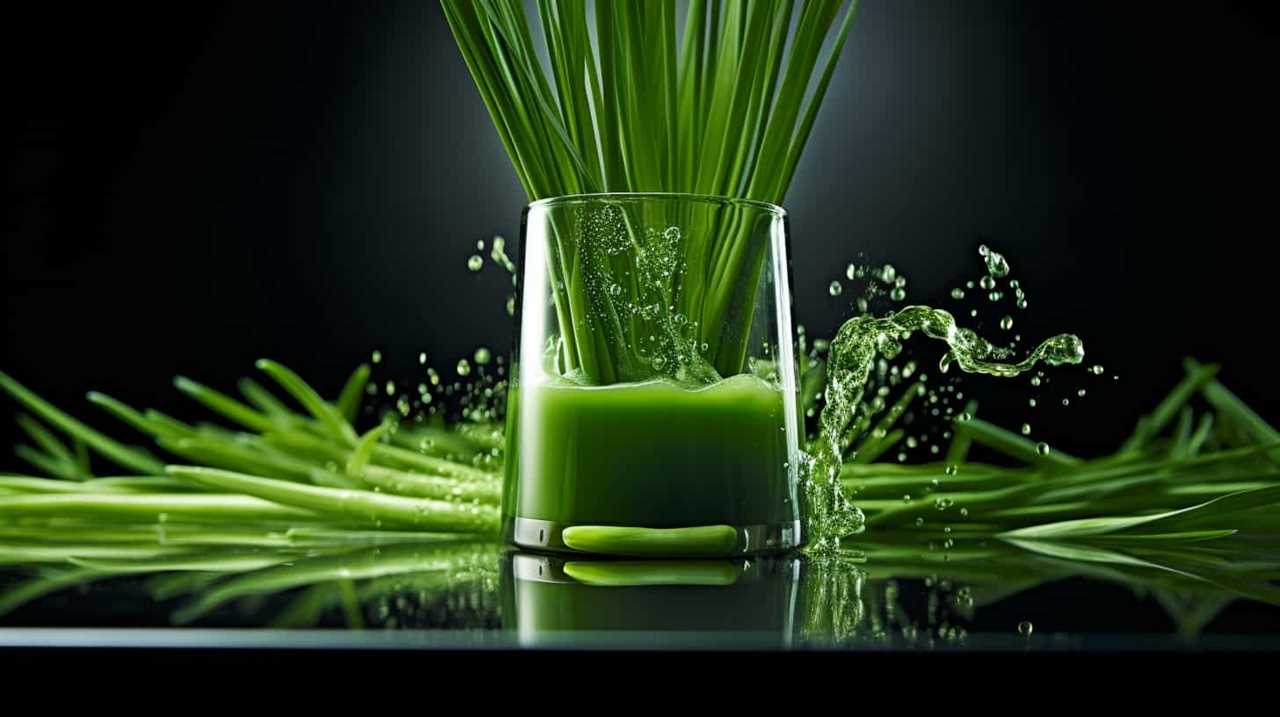
Now, let’s move on to discuss the texture changes in orange juice.
Texture Changes in Orange Juice
As we explore the texture changes in orange juice, it’s important to note that certain factors can cause it to become thicker or develop sediment. One common texture change in orange juice is pulp separation, where the pulp separates from the liquid and settles at the bottom. This can occur naturally over time, as the pulp particles become denser and sink.
Another factor that can affect the texture of orange juice is the expiration date. As orange juice ages, it may start to develop a thicker consistency and even form sediment. This is a result of the natural breakdown of the juice’s components. Therefore, it’s crucial to check the expiration date on orange juice and consume it before it reaches its expiration date to avoid any undesirable texture changes.
Mold or Growth in Orange Juice
We need to be aware of the possibility of mold or other growth occurring in orange juice. Mold can develop in orange juice if it isn’t stored properly or if it has passed its expiration date.
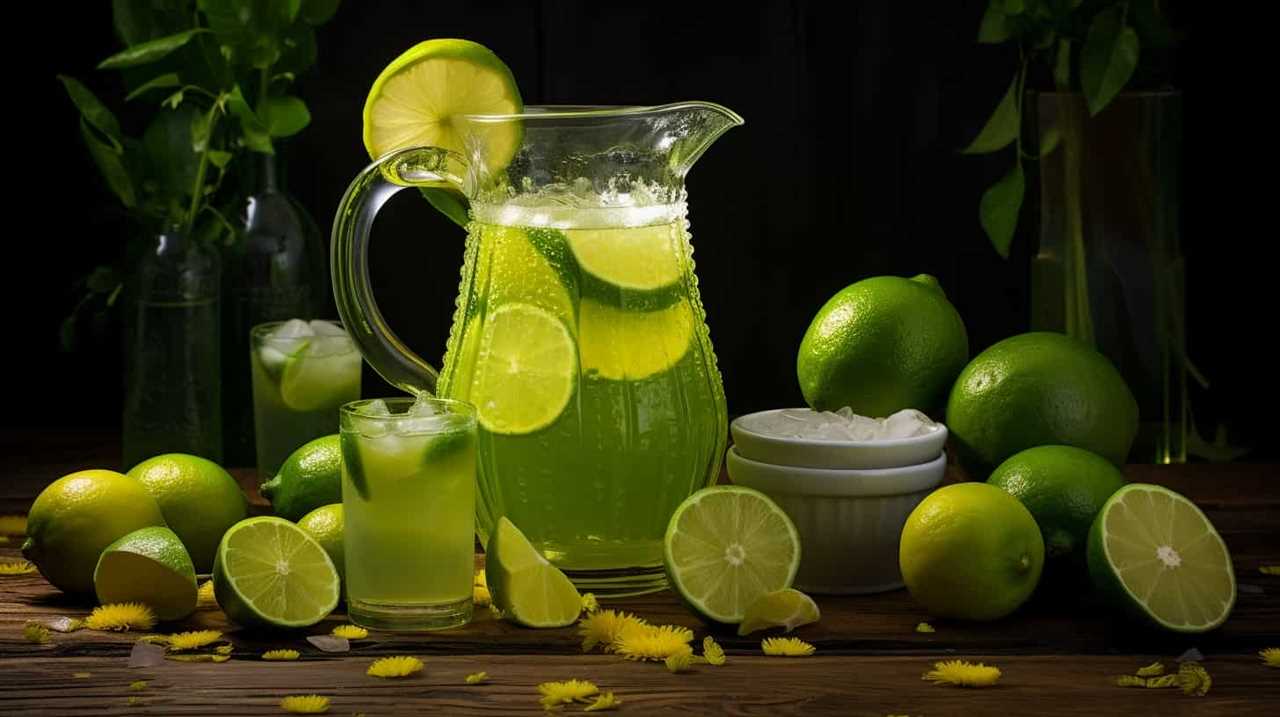
To prevent mold growth, it’s important to follow these steps:
- Store orange juice in the refrigerator at a temperature below 40°F (4°C).
- Check the expiration date on the bottle before consuming. Discard any orange juice that has expired.
- Keep the container tightly sealed to prevent air and moisture from entering, as these can promote mold growth.
Regularly inspecting orange juice for any signs of mold or unusual growth is essential. If you notice any discoloration, a strange odor, or visible mold, it’s best to discard the juice to avoid any potential health risks.
Frequently Asked Questions
Can Orange Juice Go Bad if It’s Stored in the Freezer for Too Long?
Frozen orange juice can potentially lose its nutrients and change its taste if stored in the freezer for too long. It is important to check for signs of spoilage before consuming it.
How Long Can Orange Juice Stay Fresh in the Refrigerator Once It’s Opened?
Once opened, orange juice can stay fresh in the refrigerator for about 7-10 days. To maintain its freshness, store it properly by keeping it tightly sealed and at a consistently cold temperature. If the orange juice develops an off odor, flavor, or appearance, it’s best to discard it to avoid any potential health risks. Factors like exposure to air and varying temperatures can influence how long orange juice lasts, so it’s crucial to handle it with care. Always check the expiration date as a general guide, but remember that proper storage can extend its freshness slightly. Additionally, avoid leaving the orange juice out at room temperature for extended periods, as this can significantly shorten how long orange juice lasts. Freezing the juice can be another option to extend its shelf life, but be aware that this may alter its texture and taste once thawed. By following these precautions, you can ensure your orange juice stays fresh and safe to consume.
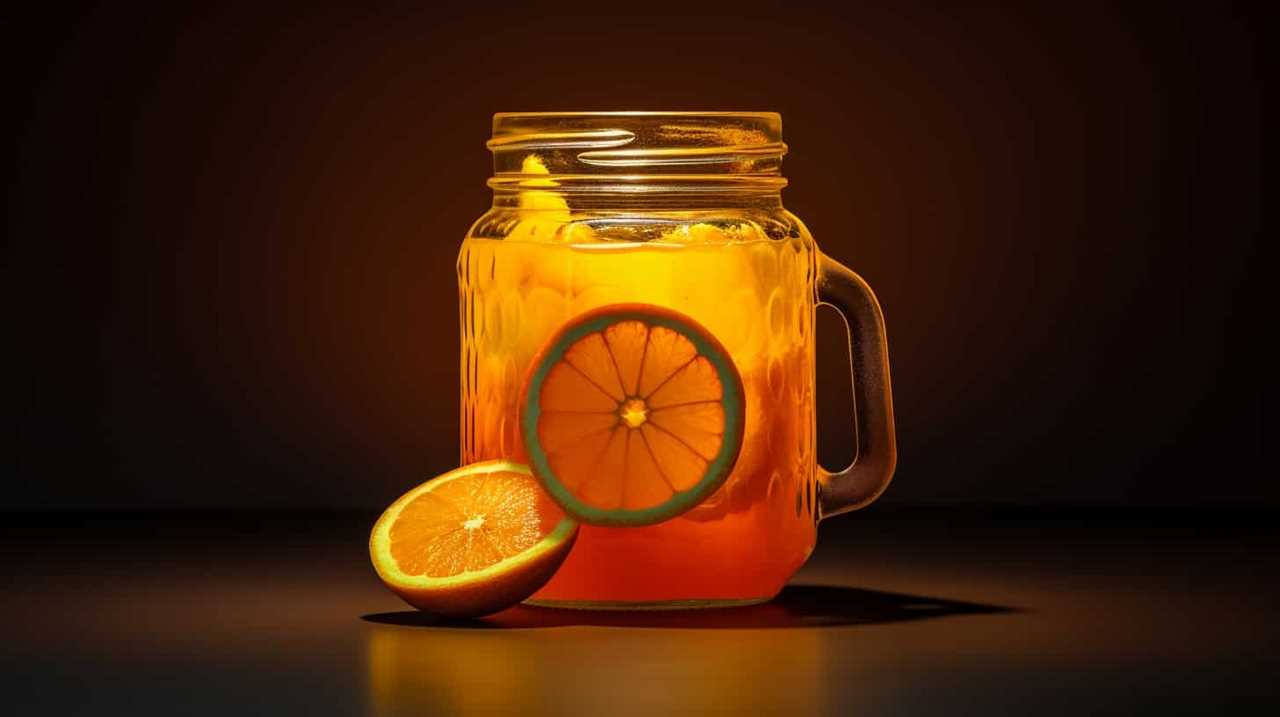
Is It Safe to Consume Orange Juice That Has Been Left Out at Room Temperature Overnight?
Left out orange juice may not be safe to drink as it can harbor harmful bacteria. Signs of spoiled orange juice include a sour smell, mold growth, and a change in color or taste.
Can Orange Juice Develop Harmful Bacteria if It’s Past Its Expiration Date but Still Looks and Smells Fine?
Orange juice can cause food poisoning if it develops harmful bacteria, even if it looks and smells fine. Signs of spoiled orange juice include a sour smell, mold growth, and a change in color or taste.
Does the Nutritional Value of Orange Juice Decrease as It Starts to Go Bad?
As orange juice goes bad, its nutritional value decreases. The longer it sits on the shelf, the more nutrients it loses. Signs of spoilage include a sour smell, off taste, and mold growth.
Conclusion
In conclusion, determining if orange juice is bad requires careful observation of color changes, strange smells, off taste, and texture changes. Just like a detective investigating a case, we must rely on our senses to detect any signs of spoilage.
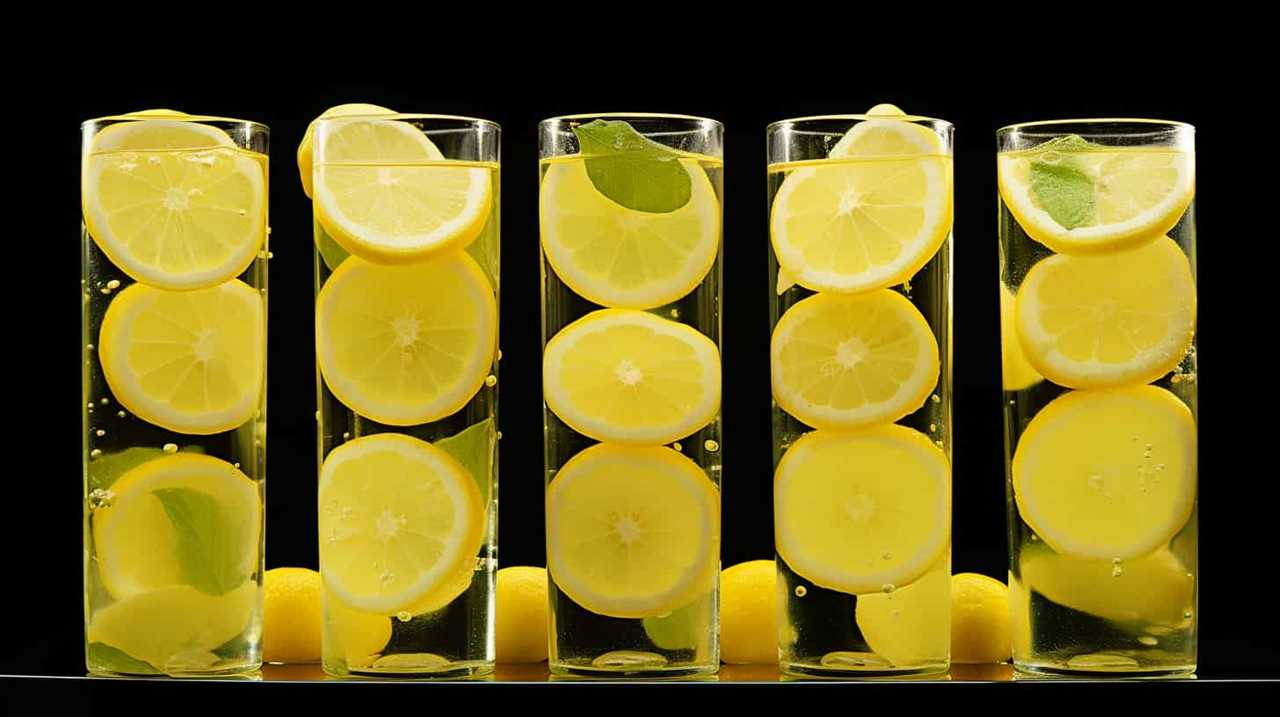
If we detect mold or growth in the orange juice, it’s a clear indication that it’s no longer safe to consume. By remaining vigilant and attuned to these indicators, we can ensure that our orange juice is always fresh and enjoyable.
Susannah expertise lies in researching and compiling evidence-based content on juicing, nutrition, and overall health. She is committed to ensuring that The Juicery World offers accurate, up-to-date, and trustworthy information to empower readers to take control of their health. Susannah’s goal is to inspire individuals to embrace juicing as a way to nourish their bodies and live their best lives.
-

 Vetted2 months ago
Vetted2 months ago15 Best Juices for Diabetics: Refreshing Options That Won’t Spike Your Blood Sugar
-

 Vetted2 months ago
Vetted2 months ago15 Best Decaf Coffee Options for Flavor Lovers Who Need a Caffeine Break
-

 Vetted2 months ago
Vetted2 months ago15 Best Espresso Ground Coffees to Elevate Your Morning Brew
-

 Vetted2 months ago
Vetted2 months ago15 Best K-Cup Coffee Pods for a Perfect Brew Every Time
-

 Vetted2 months ago
Vetted2 months ago15 Best Beans for Espresso: A Guide to Perfecting Your Brew
-

 Vetted2 months ago
Vetted2 months ago15 Best Inexpensive Espresso Machines That Brew Quality Coffee on a Budget
-

 Vetted2 months ago
Vetted2 months ago15 Best Kona Coffees to Savor the Rich Flavors of Hawaii
-

 Vetted2 months ago
Vetted2 months ago15 Best Cold Brew Coffees to Keep You Refreshed All Summer Long



